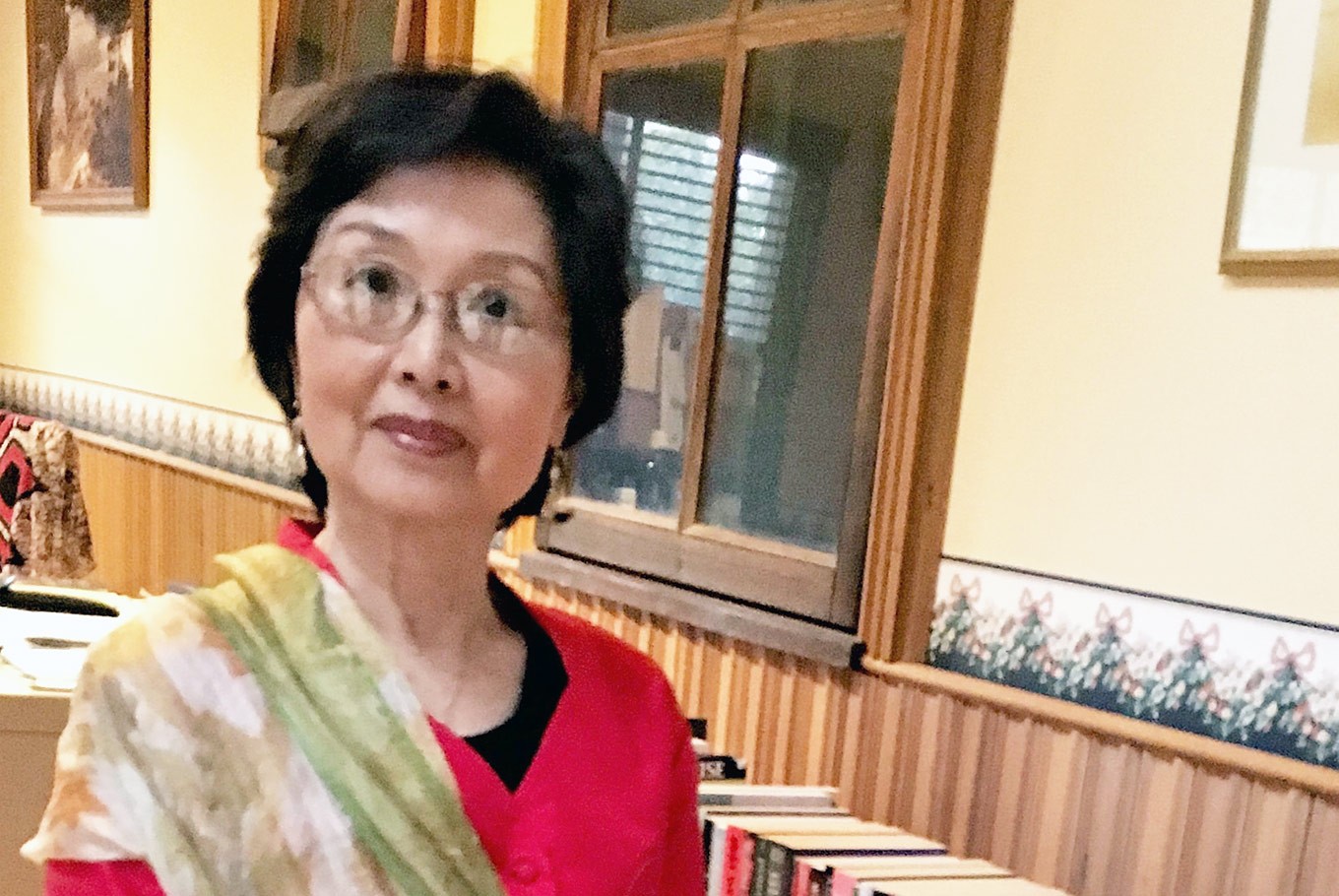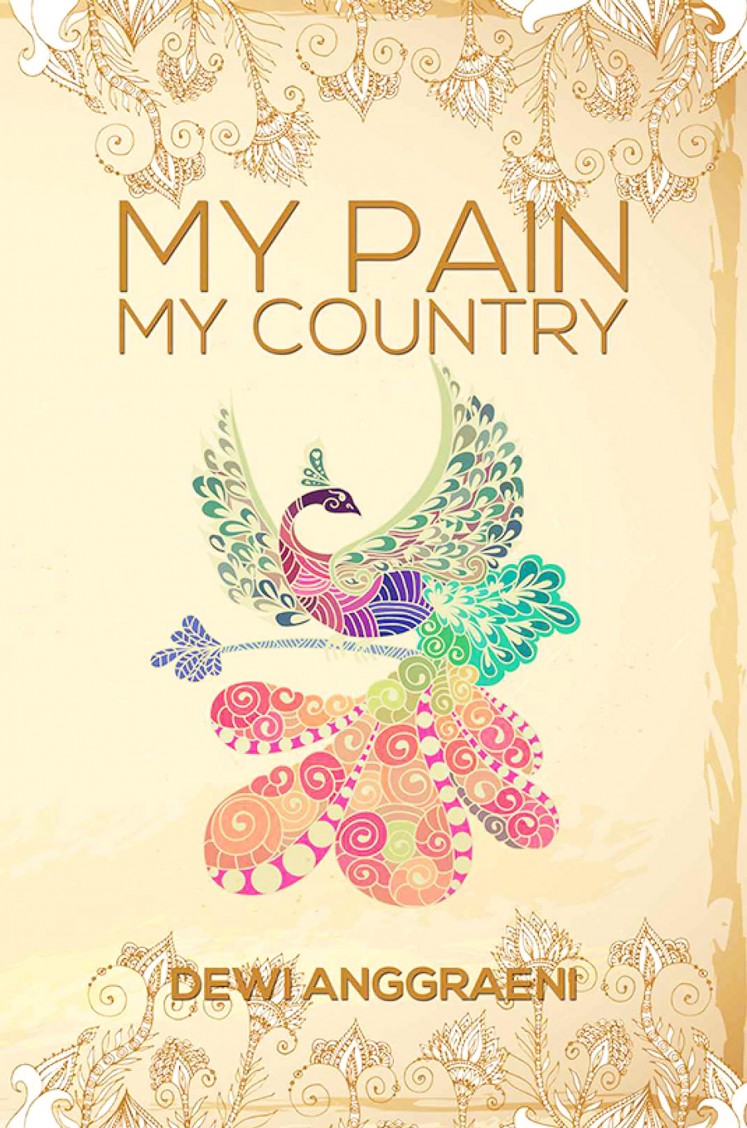Popular Reads
Top Results
Can't find what you're looking for?
View all search resultsPopular Reads
Top Results
Can't find what you're looking for?
View all search results'My Pain, My Country': A detailed account of a rape victim
Many would remember the downfall of former president Soeharto but might forget the riots that occurred in many cities that precluded and followed his fall, particularly the mass rape.
Change text size
Gift Premium Articles
to Anyone
I
magine that your teenage daughter has been raped. What would you do? You venture into the streets in panic to find her, but the streets are blocked as riots have flared across the city. And you happen to be a Chinese Indonesian, a member of a community most vulnerable to attacks.
Terror reins your mind and conflicting streams of thoughts rush in. What words to utter when you would eventually meet her? How would you unroll your day as one minute has become an eternity? How would your neighbours, relatives and friends react to learning this?
My Pain, My Country tells you all about it in exacting details.
When rape victim Irina finally comes home, her family finds out that she would barely utter a single word and she would scream upon seeing someone coming when she wakes up. Her tendency to shut herself out comes from unnamed fear. She often perspires uncontrollably and her mood swings wildly from anger to shame and guilt.
That Irina’s story sounds so real is not surprising, as Dewi Anggraeni is also the author of Tragedi Mei 1998 dan Lahirnya Komnas Perempuan (the May 1998 Tragedy and the Founding of the National Commission on Violence Against Women), a non-fiction book.
Dewi said she had wanted to translate Tragedi into English, but had no energy to do so. Instead, she penned this novel, which is her 12th book. She said she had written it as an attempt to fight oblivion, 20 years after it happened.
Tragedi is based on onsite research with support from community leaders, many of whom are courageous women who defied all odds by working underground to help rape victims 24/7 in one of the most male-dominated societies.
The fact that a number of these woman volunteers ended up in divorce themselves, among other reasons because they had to spend so much time with the victims, speaks volume of the devastating effect of rape. It does not only destroy the victim’s family, but those who support her as well.
The novel opens with Irina’s struggle to bring herself to senses following the May 1998 riots in Jakarta that brought former president Soeharto down.
After a sojourn in Australia, Irina committed suicide in Jakarta out of an acute depression. Meanwhile, her mother Mariana and elder sister Narida, who have to cope with her death, suffer from mental breakdown and a sense of guilt. Both mother and daughter can never recover from a deep sense of failure and guilt.
Despite the unspeakable suffering of both ethnic Chinese and non-ethnic Chinese in the May tragedy, no one has been brought to justice. The government has never acknowledged that mass rape occurred.
My Pain, My Country by Dewi Anggraeni (Dewi Anggraeni/File)After 100 pages of what feels like a slow start, this story of three generations of ethnic Chinese women, begins to pick up.
The author debunks the myth of deeply rooted community stereotypes of this complex multi-cultural society of 700 ethnic groups embracing the world’s major religions.
Irina’s family receives immense support from friends of non-Chinese ethnicity and from strangers, which means not all non-Chinese Indonesians are indifferent to the discrimination ethnic Chinese suffer from.
Irina was first rescued by a family of haj and hajjah — revered titles for Muslim men and women who have gone on the pilgrimage to Mecca, strangers who are not of Chinese background.
The stereotype of Chinese Indonesians refusing to marry non-Chinese is knocked down when Irina’s sister Narida gets married to a non-Chinese Indonesian, a son of the Ramli family. Narida is Christian and her husband, Pria, is a Muslim, something that was not very common at the time.
Likewise, not all Chinese Indonesians fled abroad following the tragedy. Irina’s mother, Mariana, stayed put. She is engaged in batik making, a traditional Indonesian art.
Also, not all Chinese Indonesians are unwilling to do something for their country as the stereotype goes. Irina’s grandfather has fought for Indonesia’s independence since he was a student in the Netherlands. Once he returned to Indonesia, he became a lawyer and a newspaper columnist.
It shows that Irina’s family and those of her grandfather’s long to belong to Indonesia, to paraphrase John O’Donohue’s ( 1956 ) words quoted in the book (p. 30). And this longing “is not merely a desire to be attached to something but rather sensing that great transformation and discovery become possible when belonging is sheltered and true”.
Dewi also attempts to dig out the source of hatred against ethnic Chinese (p. 216) in society. Why do they hate ethnic Chinese? Generally, they can’t offer any particular reasons, explained Widya, Narida’s close friend. The most common answers are that they are arrogant and corrupt, meaning they collude with officials who accept their bribes and who are equally corrupt, some of them say that this reasoning never occurred to them.
The author may have inadvertently touched on what would appear to be a luxury in many countries. Irina’s family has a full-time housemaid and a part-time gardener, like many middle-class families do. But the way her family treats the housemaid, in that she regarded her housemaid a companion, goes against the stereotype.
The value of the book lies in the study of a rape victim, a sensitive and rarely addressed topic, a reminder to the young generation about a dark chapter in national history and the debunking of stereotypes.
_____________________________
My Pain, My Country
By Dewi Anggraeni
Publisher: Austin Macauley, London, 2017
252 pages












